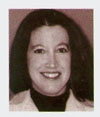
CYNTHIA THATCHER describes her motivation for writing about the present moment in this issue’s Dharma Talk (“What’s So Great about Now?“): “It seems to me that the aim of mindfulness practice is sometimes misunderstood. Many of us expect a heightened sense of beauty or joy in daily life. But when we actually keep our attention in the present, is each moment innately radiant or quite the opposite? Traditionally, the purpose of insight meditation is to see the true nature of mind and body, which doesn’t lead to a joyful feeling. Then why should we stay in the now? The article explores that question.”
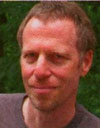
DEAN SLUYTER’s review of the British documentary 49 Up (“Midlife Splices“) is a bit of a departure from the dharma riffs on Hollywood classics in his book Cinema Nirvana: Enlightenment Lessons from the Movies. “But this documentary,” says Dean, “was too juicy to resist. As the characters age from seven to forty-nine, the deconstruction of ‘self’ seems no longer theoretical: it happens before your eyes.” A film critic for Tricyclefor the past year, Dean is also a prison chaplain, a literature teacher, and a Dzogchen Center practice leader in New Jersey.
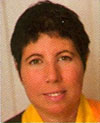
MIRA TWETI (Rev. Thich Nu Tam Xa) spoke with Venerable Karuna Dharma about Buddhist female ordination for this issue (“Daughters of the Buddha“). “As a nonfiction author and journalist, I have conducted hundreds of interviews,” she tells us, “so I was surprised at how much I learned about my longtime teacher and the struggles of women in Buddhism from just a single discussion. Until I spoke with Ven. Karuna—about her path as a bhikkhuni and her activism on behalf of other Buddhist women—I hadn’t realized how rare and remarkable it is for both of us to be ordained Buddhist nuns in the twenty-first century.”
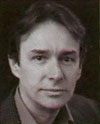
DAVID GOEWEY’s Sangha Spotlight on the Zen community in Sing Sing Prison appearshere. He writes: “Who ever imagined the dharma flourishing in Sing Sing? I didn’t, and I thought I knew everything about the place. I grew up in a family of Sing Sing guards, and I’d spent the last two years researching the prison’s deadly 1941 escape for my bookCrash Out. But when my interest in Zen led me to a zendo’s outreach program, I felt a tingle of recognition. Zen and prison? Of course. If practice is about realizing your own liberation, then prisons offer rough yet fertile ground for zazen.”
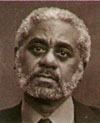
CHARLES JOHNSON has been thinking a lot about Christian theologian Paul Tillich’s critique of Buddhism since April 10, 2003, when he delivered the 26th Paul Tillich Lecture, “Suffering and Meaning in Christianity and Buddhism,” at Harvard University. His essay “The Dharma of Social Transformation” was inspired by that lecture. Johnson, who holds a Ph.D. in philosophy, is the S. Wilson and Grace M. Pollock Endowed Professor for Excellence in English at the University of Washington (Seattle). A MacArthur fellow, he is author of the National Book Award-winning novel Middle Passage and many other works.
Thank you for subscribing to Tricycle! As a nonprofit, we depend on readers like you to keep Buddhist teachings and practices widely available.